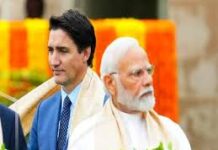‘Where have all the leaders gone’ is a book from Lee Iacocca. Mr.Iacocca was the president of Ford Motors, Chryslers Motors, and Senator. He has also founded Iacocca foundation for his philanthropy activities. His book is all about leadership lessons, philosophy of life, business lessons, winning strategies in a most narrative manner. In this book, Mr. Iacocca has boldly analysed leadership crisis in the USA and further talks about how and what mistakes USA made?
Though the book is America centric and is of 2007 time period but it isquite relevant today. It squarely addresses questions of today.The book tells us what the qualities of a fine leader are, be it in politics, business, philanthropy or any other field. I must tell, even if we imbibe some of these values, we can be good human beings, if not great leaders. Let’s see what these values are.
The Test of a leader
In the very first chapter of the book, Iacocca has beautifully mentioned “Nine Cs of Leadership”. Iacocca figures out obvious qualities that every true leader should have. These are…
Curiosity
A leader should have Curiosity. He has to listen to people outside ‘Yes Sir’ group in his inner circle. If he doesn’t steps outside his comfort zone to hear different ideas, to get a different perspective, then he never grows.
Creative
A leader has to be creative and adaptive to changes happening around.Moreover, he should be thinking out of the box and finding innovative solutions for the problems.
Communicate
He should talk clear and truth. Though, my personal view is that 100% honesty is not good for human beings but you cannot expect a dishonest leader. He should have ability to communicate his ideas, thoughts, vison to the mass and in a simplest manner.
Character
Character is above all and it decides everything.Power corrupts and absolute power corrupts absolutely.Sign of a true leader is that he never changes his originality or losses his morality evenat the top.
Courage
A leader should have got tones of guts. He should be ready to fight against the entire world for the truth and things he believe in. However, courage is not always about fighting and talking tough, but as Iacocca says, ‘nowadays courage is a commitment to sit down at the negotiating table and talk’.
Conviction
To be a leader, you should have fire in your belly. You really something to gets done and finish something. A true leader is a passionate for his work and hence his people also take him seriously.
Charisma
As Iacocca says, a leader should have charisma. He should be able to inspire people. He should be able to make them follow with him.
Competent
It is obvious that a leader should be competent. Moreover, it is important that he should have surrounding people who are equally competent.
Common Sense
The last thing is of utmost importance. Iacocca says, you can’t be a leader if you don’t have common sense.
Qualities of a leader
Ability to motivate people
A rare quality of a leader is that he can motivate people even when they are struggling. He does not jump on every mistake and rule by intimidation. He may express his anger but eventually he motivates people to give their best shots. He builds faith in them.
Everyone’s involvement
Based on his experience, Iacocca shares that sometime we (leaders)fascinated by some individual and start thinking that the person is some kind of magician. In fact, the reality is that the quality of team will ultimately make or break success. It is never just one person. People who work together will win – period.
Ability to priorities
The leader should be able to write down his top priorities on a single sheet of paper. If he can’t state a priority in 50 words or less, he is in trouble.
Business lesson
A leader has to know who his true friends are, and it’s not always the ones who agree with everything or follow blindly. Further Iacocca shares an important business lessons for leaders thatif you are getting a single point of view from your team- (usually your point of view) – then you have got to worry. You can get your own point of view for free.
Generous
A leader should be kind and generous. By quoting an example of Sandler O’Nil (one investing firm) of USA, Iacocca shares that how asurviving partner of this firm (Mr. James Dunne III) helped families of 64 employeeswho died in the 9/11 attack of the World Trade Center. He and his firm took care of their families, arranged full pensions, set up foundation for their children’s education etc. And it is absolutely true that ‘When true leadership is being practiced, it never fails to make the heart soar’.
Does not play blame game
A true leader does not put blame on others for mistakes. He will come forward and take responsibility. At one places, Iacocca writes that everyone makes mistake. The trouble is that most people put blame to others. They will try to put the blame on their wife, mistress, kids, the dog, the weather – anything but themselves. So if you have made mistake, don’t put blame on others.
Lesson for life
The book is all about leadership traits. One of the important traits is ability to rise after fall. It distinguishes winner from a looser. In life you will face different and difficult conditions. It requires immense courage and ability to deal with such changes and succeed.
As Iacocca says ‘Life is full of ups and downs. Business cycles go round and round. Events happen that rock your world: People in family die. You get divorce. You get fired. Your business goes under.
But before you deal with it, you have to see it and then accept it. Sometimes the hardest part is to acknowledge and then accepting that the way you have done business and or lived your life just won’t work anymore.” People, who accept this truth, can face the odds with open minds.
And succeed faster.
Conclusion
Sometimes after reading so much literature on leadership, we still wonder that what the basic job of a leader is.But after reading this book, I could find a reasonably goodanswer.
‘The job of a leader is to accomplish goals that advance the common good. Anyone can take up space. But Iacocca says the test of a leader is when he leaves office, we should be better off than when he started. It’s that simple.’















